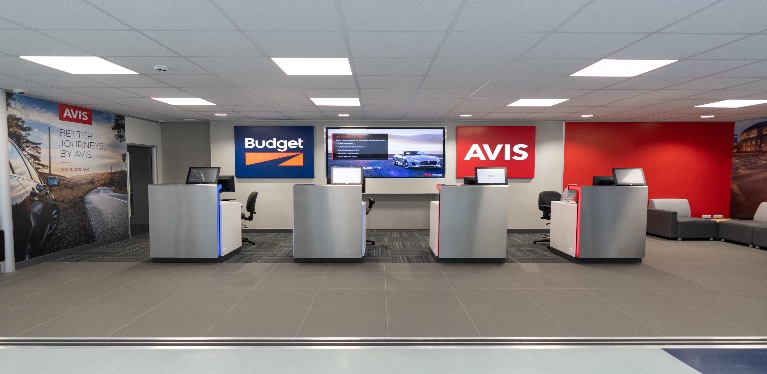Great Info For Choosing A Car Rental Website
Great Info For Choosing A Car Rental Website
Blog Article
How Can You Evaluate The Insurance Offered By The Car Rental Company?
To prevent unnecessary expenses and be properly secure, it's essential to look over the insurance options and coverage provided by the rental company. Reviewing insurance coverage when renting a car Learn the basics of coverage. Start by knowing what the basic insurance is in the rental agreement. The majority of rental companies provide liability insurance of a basic nature, that covers bodily injury as well as damage to property that is caused by third parties even if you're the cause. However, this insurance may have limitations and deductibles.
Review additional coverage options Apart from the standard insurance, rental companies provide various optional insurance packages to offer additional protection. There are two types of additional coverages that are commonly used- Collision Damage Waiver which can reduce or eliminate the financial liability that you are responsible for damages caused to the rental car as well as Loss Damage Waiver which covers damage or theft to the rental.
Assess coverage limits and deductables Check the coverage limitations and deductibles with the various types of insurance. Determine the maximum amount that the insurer will pay in the event of a loss or damage, and the amount you will be responsible for yourself (deductible) prior to the insurance coverage taking effect.
Review your personal insurance policies. See if your auto insurance policy or credit card includes rental cars. Certain credit card companies provide secondary insurance for rental cars when you use the card. Your personal auto policy may also be extended to rental vehicles. However, the extent of that coverage will vary according to the policy you are covered by and the insurance provider.
Review Your Risk-Tolerance- When deciding on whether or not to get additional insurance, consider your risk tolerance as well as your financial position. If you're looking for security and worry about the possibility of theft or damage of the car, buying additional coverage could be worth it. If you've got adequate insurance elsewhere, you can choose to skip the insurance provided by the rental company to save money.
Ask about Exclusions. You should ask the rental company if there are any limitations on insurance coverage. For instance, there are restrictions on off-roading, unauthorised drivers or commercial use. Be sure to fully understand the conditions and terms of the policy. This will help you avoid any surprises in the event of accidents occur.
Document Existing Damage. Before accepting the car rental, thoroughly inspect the vehicle to determine if there is any wear and damage. Document any scratches or dents on the rental contract and take photos or videos as proof. This will prevent you from having to pay for damages that is already present in the vehicle when you return it.
Analyzing the insurance options and other options offered by the rental company will assist you in making the right choices. So, you'll be protected throughout the rental period, without having to pay for unnecessary expenses. Follow the most popular her latest blog for Worldwide car rentals for more recommendations including rent a car one way, car rea, one day car hire, car rental near me luxury, rental luxury, book a car hire, places to rent a car, car rental how to, rent a car one way, book a car hire and more.
How Can You Check The Vehicle For Indications Of Damage?
The inspection of the rental vehicle for any damage or indications of wear and tear before signing the rental contract is vital to ensure that you are not held accountable for pre-existing issues upon return. To conduct a thorough examination make sure to follow these steps:
You should carefully inspect the car's exterior for dents, scratches, and other marks.
Make sure you pay attention to any areas that are prone to damage such as doors and bumpers.
Look for any cracks or chips on the windshield and windows.
Inspect the undercarriage and the vehicle for indications of damage or leaks.
Interior Inspection
Check the interior by opening the doors as well as the trunk.
Check the seats, upholstery and carpets for signs of stains, tears or excessive wear.
Test all seat adjustments including the driver's seat for a check to see if they work in a proper manner.
If you find any damage, make sure you check the steering wheel and dashboard.
Check out the state of HVAC systems, air conditioning systems and the ventilation.
Check all electronic functions, including the audio system.
Functional Inspection
Start your car and look for any warning lights or an error message displayed on the dashboard.
Test the brakes (if appropriate), accelerator, and clutch to make sure that they work in a proper manner.
Make sure you turn on the headlights as well as brake lights, high beams, and turn signals to confirm they're functioning properly.
Test the windshield wipers, washer fluid, horn and the emergency/parking brake.
Document any Damage
To document existing damage To document any damage that has occurred, make use of the rental agreement form or smartphone application provided by the rental company.
Make videos and photos from various angles. Focus on the wear and tear or damage.
Be sure to note the location, size and the magnitude of each scratch mark, or other scratch in the rental contract form.
Before accepting the vehicle Before you accept the vehicle, report any damage to the representative of the rental company's attention.
Report Damage:
The representative from the rental company needs to be informed of any damages or issues you've discovered during the inspection.
You may ask them to send a copy of the inspection report as well as document the damages in their files.
The representative and you as well as the representative of the rental company need to sign the rental agreement or the inspection report in order to confirm any damages.
Follow these steps to protect yourself against the risk of liability. By thoroughly inspecting the vehicle you are renting and checking for any signs of damage or signs of wear before settling the vehicle, you can make sure that your rental experience is smooth.
What Are The Requirements For Returning A Rental Car?
When you review the conditions and terms for returning the rental car it's important to consider several factors to ensure a smooth and hassle-free return process. The following are important points to remember- Drop-Off Location- Check the drop-off location in the rental agreement. Make sure you return the rental car at the correct location, as agreed upon with the rental firm. Many rental companies offer multiple drop off locations including rental offices and airport terminals. So, it's important to confirm the exact location.
Acceptable Return Time- Check the agreed upon return times. Rental companies will usually specify the time and date of return for each vehicle. The vehicle must be returned by the time specified to avoid late fees and penalties.
Penalties for Late Returns- Read the rental policy of the company regarding late return and any associated penalties. Learn about the penalties for not returning the car past the agreed upon time. These may include late fees, or other charges. Rental companies may add a day's charge for each day or portion of a day when the vehicle is late.
Discuss your options for an extension. Some rental companies will allow you to extend your rental. It is contingent on availability and could result in additional fees. You can request a rental extension by calling the rental firm before the deadline.
Requirements for Return Condition- Become familiar with yourself with the rules for returning the rental car in good state. Most rental agreements state that the vehicle has to be returned in the same condition as it was when rented. You should take note of any specific directions regarding cleaning or removing items from the car.
Inspect the Vehicle Upon Return Check the vehicle for any final issues of the rental car before returning it to the rental company. Examine for any new problems or damage that could have occurred during your rental period. Bring any new damages or issues to the representative from the rental company's attention.
Return Process. Learn about the return process which includes any documentation or process that is necessary. Follow the directions given by the rental company for returning keys, filling out all necessary paperwork, and getting a final receipt or a confirmation of return.
Consider these factors when returning the vehicle, and then review the terms of the rental agreement to make sure you are meeting the conditions. This will help you avoid any fines or problems.